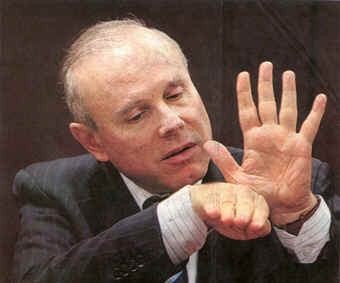
Bruno Lima Rocha, political scientist, Porto Alegre Metropolitan Area, south of Brasil – may the 6th remembering the financial crisis in November 2008
On October 28th, 2008, some brazilian economic newspapers specialized in written to capitalist executives launched a “routine” news. Those words reflected the proportion of financial gambling in Brasil. From every five publicly traded company, selling and buying bonds in the São Paulo Stock Exchange (Ibovespa), four have contracts based on derivatives in their recent assessments. Those corporations are, in theory, part of the so-called "real economy". Translating that pretense specialized jargon to blue collar language, it means that 80% of companies operating in the biggest country in América Latina are part of the financial casino. If the deal with future market is in balance held businesses, we can imagine the size of this deep real hole. Eight out of ten brazilian capitalist companies gambled with dollar or the price of gringos mortgage securities. Good portion of them are financed with loans and subsidies achieved from the National State Treasury. Therefore, they are playing with our money, and as expected, they will not be suffering any kind of economic coercion by the authorities.
As political struggle in the institutional set of rules shows only a part of the political game of market-democracy, the same is true in the capitalist economy. The balance sheet stated in stock exchange, and in theory controlled by the Securities Commission, but this is half of the truth. It is common to exist in each Top Company, Slush Funds in series, remittance of foreign currency direction to bank accounts in tax haven paradises – such as the Opportunity Fund Cayman – and other illegal practices who are the routine of big capital. Another “blue collar” reflection. You cannot trust big business balance sheet. The senior executive takes breakfast with who, allegedly, by legal rules (and not the real), should enforce it. On the other side of the town, in a common neighborhood, a small business is always under vigilance. The corporate media makes scandals when a jailer takes beer with an arrested drug dealer. Surprisingly they do not scream when economic operators, the real pirates of the financial market, have "business lunch" with high patent from the State.
State economy authorities said had no idea about the size of the hole, or the risk dimension. Brasil’s Finance Minister, Guido Mantega and Central Bank president, Henrique Meirelles (former world BankBoston president), are not naïve. If the Minister does not have the information, who could have? Henrique Meirelles is one of the most powerful men in Brasil. He commands an enormous technocratic apparatus and monitors the digitalized capital movements and economic assessments of the country. It is a matter of logic. When they claim knowing nothing, is because they are of everything!
Original post in GNN TV
